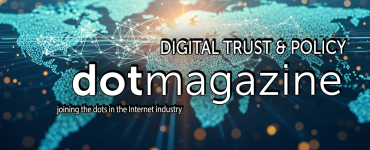What role do “ecosystem technologies” and digital identities play in authorisation and proof-of-origin chains? Carsten Stöcker from Spherity GmbH talks about this in an eco member interview.
Mr Stöcker, would you please give us a brief introduction to your company, Spherity?
Spherity is a European market leader in the field of decentralised identities, credentialing and data sharing for B2B use cases with a focus on cybersecurity, compliance and automation. Spherity offers decentralised identity SaaS solutions for regulated industries such as Pharma, Supply Chain, AgriFood and Energy. Spherity’s decentralised identity wallet can be used by businesses in a variety of industries, including product verification, supply chain tracking and ESG (environmental, social, governance) compliance. Our first product CARO ensures cyber-secure and compliant transactions in the US pharma supply chain industry. It enables the required compliance with the Drug Supply Chain Security Act.
Which digitalisation topics are particularly important to you?
People and businesses face health, fraud and environmental problems of all kinds. In order to solve these problems, numerous new compliance regulations are being designed and implemented by policymakers. Examples are: Supply chain legislation, product passports, ESG and circular economy. However, there is a lack of digital evidence and the digital backbone for scalable and automated business transactions that are in line with these regulations. This lack of digital infrastructure leads to massive fraud, counterfeit products and lots of greenwashing.
What are the special challenges of your industry at the moment and how are you working on them?
The success of any technology depends on its acceptance. The effective adoption of decentralised identity and data-sharing technology such as Gaia-X depends not only on the technology itself, but, more importantly, on how adoption is approached:
- the development of a shared ecosystem,
- the simplicity of the first use cases,
- the creation of common goals and
- the assumption of responsibility for a roll-out by the business side.
Unfortunately, the adoption of these technologies is mostly dominated by technicians. We are working to involve the business units to realise benefits in the real world.
How do you expect your membership in the eco Association to support you in this regard?
Technology to build a digital infrastructure across multiple partners in a value chain is a so-called “ecosystem technology”. With our membership in the eco Association, we share the view that we can set the cooperation in the adoption of technologies on a broader basis.
What opportunities will digitalisation offer us in the future?
In the future, the outlined solutions for digital identities can shape a basis for authorisation and proof-of-origin chains. This helps to automate compliance at scale at the individual transaction level. This will make our value chains and the products we consume safer, cleaner, more environmentally sustainable, more ethical and more reliable. If this does not succeed, humanity will founder on “greenwashing”.
Mr Stöcker, thank you very much for the interview.




